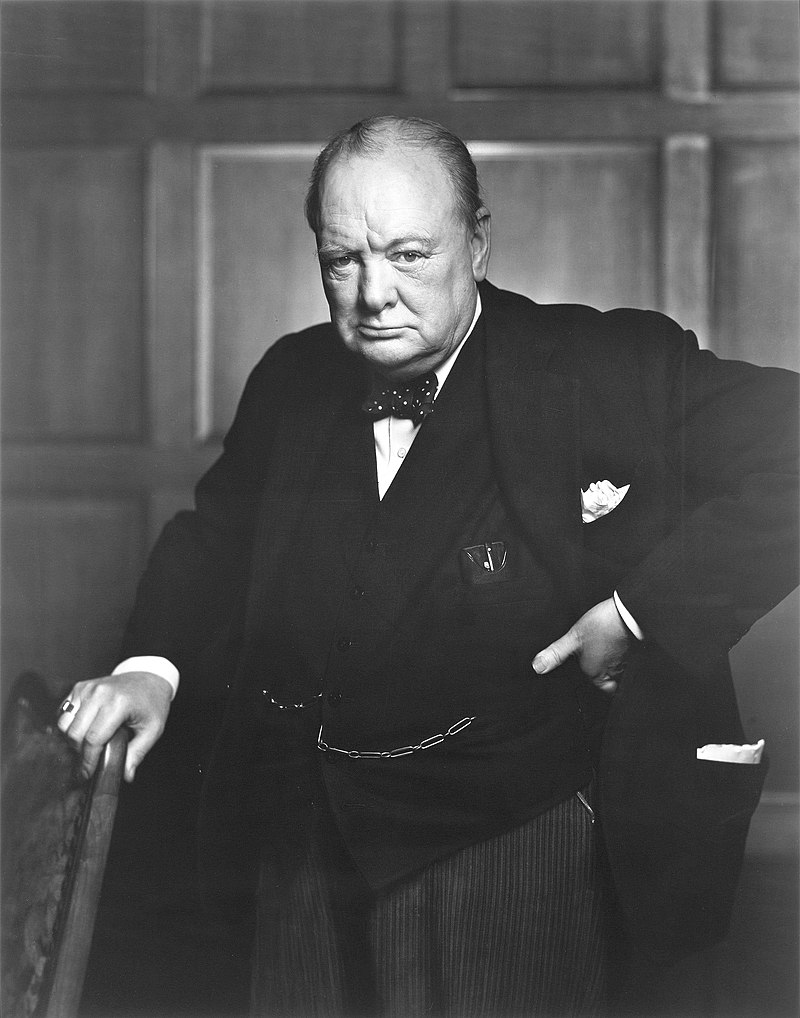Biography Of Winston Chruchill
Sir Winston Leonard Spencer-Churchill
(Winston Churchill)
Born : 30 November 1874 in Bleinheim,Oxfordshire, Englad
Died : 24 January 1965 in Kensington, Lodon, England
Winston Churchill was a British politician, army officer, and writer. He was Prime Minister of the United Kingdom from 1940 to 1945, when he led Britain to victory in the Second World War, and again from 1951 to 1955. Churchill represented five constituencies during his career as a Member of Parliament (MP). Ideologically an economic liberal and imperialist, for the last of his career he was a member of the Conservative Party, which he led from 1940 to 1955, but from 1904 to 1924 was a member of the Liberal Party.
Of mixed English and American parentage, Churchill was born in Oxfordshire to a wealthy, aristocratic family. Joining the British Army, he saw action in British India, the Anglo–Sudan War, and the Second Boer War, gaining fame as a war correspondent and writing books about his campaigns. Elected an MP in 1900, initially as a Conservative, he defected to the Liberals in 1904. In H. H. Asquith's Liberal government, Churchill served as President of the Board of Trade, Home Secretary, and First Lord of the Admiralty, championing prison reform and workers' social security.
During the First World War, he oversaw the Gallipoli Campaign; after it proved a disaster, he resigned from government and served in the Royal Scots Fusiliers on the Western Front. In 1917, he returned to government under David Lloyd George as Minister of Munitions, then as Secretary of State for War and Air, and finally for the Colonies, overseeing the Anglo-Irish Treaty and Britain's Middle East policy. After two years out of Parliament, he served as Chancellor of the Exchequer in Stanley Baldwin's Conservative government, returning the pound sterling in 1925 to the gold standard at its pre-war parity, a move widely seen as creating deflationary pressure on the UK economy.
He's one of the most famous Britons of the 20th Century and led the country during the Second World War.
He's a hero to many and his speeches are some of the most famous in history - there's even a statue of him outside Parliament.
‘We shall never surrender’
4 June 1940. House of Commons
After the Dunkirk evacuation, Churchill calms the nation’s euphoria and stiffens its resolve.
“Even though large tracts of Europe and many old and famous states have fallen or may fall into the grip of the Gestapo and all the odious apparatus of Nazi rule, we shall not flag or fail. We shall go on to the end, we shall fight in France, we shall fight on the seas and oceans, we shall fight with growing confidence and growing strength in the air, we shall defend our island, whatever the cost may be, we shall fight on the beaches, we shall fight on the landing grounds, we shall fight in the fields and in the streets, we shall fight in the hills; we shall never surrender.”
source :



Komentar
Posting Komentar